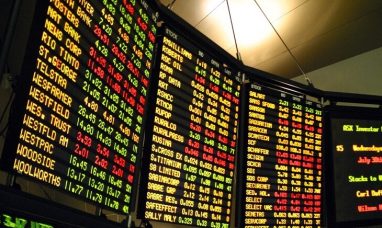Good news on the U.S. economy is no longer a surefire boost for Wall Street. Tuesday’s stock market news reveals a mixed response from investors after reports highlighted stronger-than-expected job openings and business activity, creating uncertainty in stock indexes.
The S&P 500 slipped 0.4% in morning trading after briefly gaining, while the Dow Jones Industrial Average (DJIA) fell by 42 points, or 0.1%. The tech-heavy Nasdaq composite saw the largest dip, dropping 0.9%. The mixed performance highlights the stock market’s shifting dynamics amid fluctuating Treasury yields and Federal Reserve policies.
Rising Treasury Yields Shake Investor Confidence
The bond market’s reaction to the latest economic reports played a significant role in Tuesday’s Wall Street’s news. Treasury yields surged, with the 10-year Treasury yield climbing to 4.68%, up from 4.63% earlier in the day. This increase marks a significant jump from 4.15% in early December, showing the bond market’s sensitivity to economic conditions.
Rising Treasury yields pose a challenge for stocks. Treasury bonds, considered one of the safest investment options, become more appealing to investors when their yields rise. This shift can divert funds away from stocks and into bonds, pushing down stock prices.
Higher yields also make borrowing more expensive, impacting both corporations and individual consumers. Homebuyers, for example, may face higher mortgage rates, while businesses might need to adjust their strategies due to increased borrowing costs.
Federal Reserve’s Role in Stock Market Fluctuations
The Federal Reserve’s interest rate policies continue to influence stock market news. The central bank has raised short-term rates significantly in recent years to control inflation. While inflation has eased from its peak, it remains above the Fed’s 2% target.
Initially, investors anticipated that the Fed would start cutting rates more aggressively in 2025. However, recent statements from the Fed suggest fewer rate cuts than expected, creating uncertainty in the stock market. The Fed’s cautious approach aims to ensure inflation doesn’t reignite, but it also keeps borrowing costs elevated, which can weigh on stock prices.
Corporate Moves Impacting Wall Street
In other stock market news, Cintas Corporation (NASDAQ:CTAS) made headlines by offering to acquire its competitor UniFirst Corporation (NYSE:UNF) for $275 per share in cash. Cintas revealed that it initially made the offer in November but has struggled to engage UniFirst’s board. The proposed acquisition reflects consolidation trends within industries as companies seek growth opportunities.
Following the announcement, UniFirst shares surged 27.7%, reaching $216.26. However, the share price remains below Cintas’ offer, indicating potential negotiation challenges.
Meanwhile, Shutterstock (NYSE:SSTK) and Getty Images (NYSE:GETY) made a significant move by announcing plans to merge into a $3.7 billion visual content powerhouse. This merger aims to offer customers a comprehensive range of media content, including images, videos, music, and 3D assets. As a result, Shutterstock’s stock climbed 21.5%, while Getty Images rose 25.6%, showcasing the market’s positive reaction to strategic corporate partnerships.
International Markets React to U.S. Policies
International stock markets saw mixed reactions. Chinese tech giant Tencent (HKEX:0700), artificial intelligence firm SenseTime (HKEX:0020), and battery manufacturer CATL (SHE:300750) faced setbacks after the U.S. Defense Department added them to a list of companies with alleged ties to China’s military.
Tencent’s shares fell 7.3% in Hong Kong, pulling down the Hang Seng Index by 1.2%. Despite these challenges, other Asian and European markets posted gains, reflecting varied investor sentiments across regions.
Caution Is Advised As Risk Appetite Dims on Wall Street
Tuesday’s stock market news underscores the complex interplay between economic data, Federal Reserve policies, and corporate actions. While a robust U.S. economy might seem positive, rising Treasury yields and cautious Fed policies are reshaping Wall Street’s outlook. Investors must navigate these shifting dynamics as they assess risks and opportunities in a rapidly evolving market landscape.
Featured Image – Freepik







